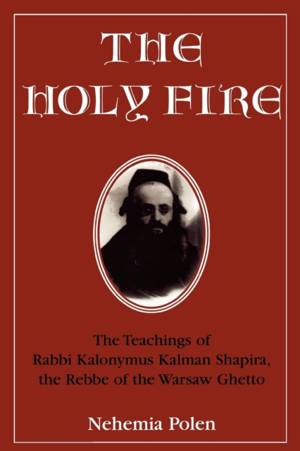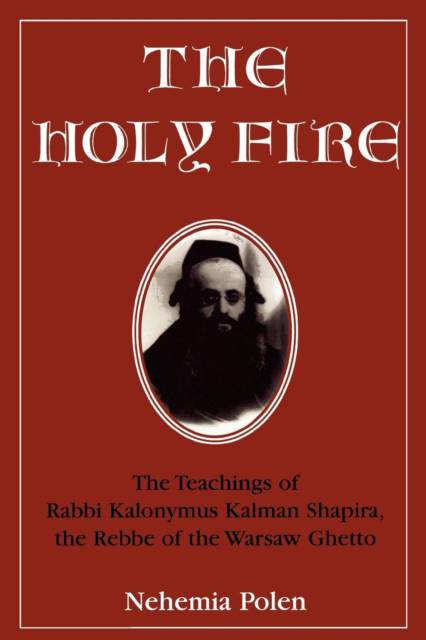
- Afhalen na 1 uur in een winkel met voorraad
- Gratis thuislevering in België vanaf € 30
- Ruim aanbod met 7 miljoen producten
- Afhalen na 1 uur in een winkel met voorraad
- Gratis thuislevering in België vanaf € 30
- Ruim aanbod met 7 miljoen producten
Zoeken
The Holy Fire
The Teachings of Rabbi Kalonymus Kalman Shapira, the Rebbe of the Warsaw Ghetto
Nehemia Polen
Paperback | Engels
€ 67,95
+ 135 punten
Omschrijving
The Holy Fire: The Teachings of Rabbi Kalonymus Kalman Shapira, the Rebbe of the Warsaw Ghetto is a journey into the mind and spirit of a sublime hasidic master in his moments of joy and tranquillity, and later, in his time of personal and communal catastrophe. The reader takes a voyage into the rich and variegated world of twentieth-century Hasidism in Poland, a world destroyed by the Holocaust. This is a volume inspired by a deeply sensitive and poetic individual of faith who is grappling with an unfolding disaster. While the Holocaust has engendered a voluminous body of religious and philosophical writings attempting to probe the issues this unfathomable period raises in all their enormity, virtually all were written after the war, when a modicum of distance and reflection is possible. Contemporaneous diaries and chronicles written as the events were happening concentrate on the descriptive accounts of the horrors. The Holy Fire, however, engages a sustained theological reflection and stands alone as an extended religious response from within the heart of darkness itself while the catastrophe takes place, and is, for this reason, an extraordinary document and an astonishing personal achievement.
Specificaties
Betrokkenen
- Auteur(s):
- Uitgeverij:
Inhoud
- Aantal bladzijden:
- 232
- Taal:
- Engels
Eigenschappen
- Productcode (EAN):
- 9780765760265
- Verschijningsdatum:
- 1/06/1999
- Uitvoering:
- Paperback
- Formaat:
- Trade paperback (VS)
- Afmetingen:
- 153 mm x 229 mm
- Gewicht:
- 299 g

Alleen bij Standaard Boekhandel
+ 135 punten op je klantenkaart van Standaard Boekhandel
Beoordelingen
We publiceren alleen reviews die voldoen aan de voorwaarden voor reviews. Bekijk onze voorwaarden voor reviews.











